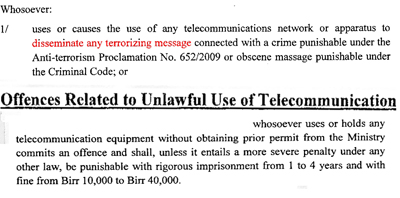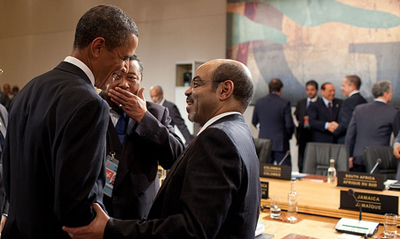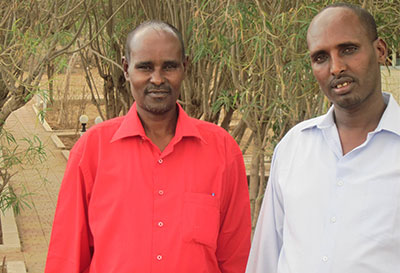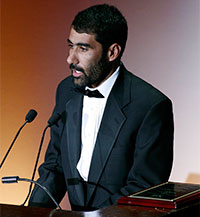In Benin, newspapers sanctioned for coverage of officials
Throughout December 2011, HAAC, Benin’s state-run media regulatory agency, summoned more than a dozen newspapers to public hearings and handed them sanctions ranging from a public apology to indefinite suspension, according to news reports. HAAC’s president is appointed by Benin’s head of state, and two-thirds of the agency’s members are appointed by the government, CPJ…
Journalist fined for defamation in Egypt
Cairo, June 18, 2012–The Committee to Protect Journalists condemns the legal action taken against an Egyptian journalist who was fined for defamation, and calls on the appeals court to reverse the ruling. In an unrelated incident, authorities briefly detained on Saturday an Egyptian journalist covering the run-off to the presidential election.

Ethiopian law criminalizes independent telecom use
Nairobi, June 15, 2012–A new law in Ethiopia imposes prison sentences for offenses related to the independent use of telecommunications tools and services, according to local journalists and news reports. The Committee to Protect Journalists is alarmed by broad and vaguely worded provisions of the law, under which journalists could be prosecuted for the methods…

US senator condemns Ethiopia’s persecution of the press
On Wednesday, the same day the White House announced a strategic plan committing the United States to elevating its efforts in “challenging leaders whose actions threaten the credibility of democratic processes” in sub-Saharan Africa, a senior member of the U.S. Congress challenged the erosion of press freedom in a key U.S. strategic partner in the…
Photojournalist faces criminal charges in Azerbaijan
Moscow, June 14, 2012–The Committee to Protect Journalists calls on Azerbaijani authorities to immediately drop criminal charges against Mehman Huseynov, a photojournalist and blogger with the Baku-based Institute for Reporters’ Freedom and Safety (IRFS) and the independent Azerbaijani news agency Turan.

Mission Journal: Somaliland’s press harassed, disappointed
“I’m free but I don’t feel free,” said Mohamed Abdi Urad, chief editor of Yool, a critical weekly published in the semi-autonomous republic of Somaliland. Mohamed had just been released on May 22 after a week in detention at Hargeisa Central Police Station. His crime? “I have no idea,” he said. Mohamed had attempted to…
CPJ urges Kyrgyzstan to release Azimjon Askarov
Dear President Atambayev: The Committee to Protect Journalists is writing to bring to your attention a new report we have issued on Azimjon Askarov, an investigative journalist and human rights defender who was sentenced in September 2010 to life in prison. CPJ’s review of Askarov’s case, outlined in the attached report, has found that his probe and trial were marred by numerous procedural violations, including his torture in custody and the lack of any evidence implicating him in criminal activity.
Brazil restates commitment to press freedom, UN plan
CPJ has received an encouraging letter from Ambassador Maria Luiza Ribeiro Viotti, Brazil’s permanent representative to the United Nations, affirming the country’s support for the UNESCO-led U.N. Plan of Action for Security of Journalists and the Issue of Impunity.

Afghan media is under political and economic pressure
Danish Karokhel, who won a CPJ International Press Freedom Award in 2008, messaged this morning concerned that the news agency he runs, Pajhwok Afghan News, and some other media outlets have been referred to the Attorney General’s Office by the Ministry of Information and Culture for reporting on an alleged bribery scandal involving a member…